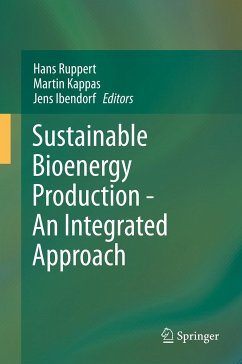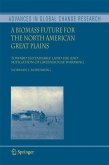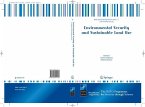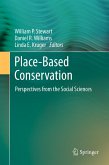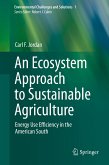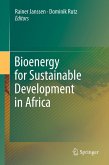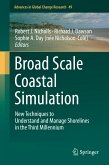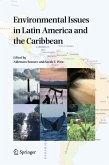It addresses a new concept that focuses on the interactions between different uses of agricultural land (for example, agriculture for food, forage or energy and nature conservation) and their ecological, economic and societal impacts. This research concept provides new insights into the competition for resources and the synergies between different land uses.
Until recently, the transition towards renewable energy has been generally misunderstood as only an economic demand, rather than as a means to gain various social and ecological advantages. Today biomass can be produced to generate energy and renewable raw materials, while simultaneously benefitting soil resources, water resources and biodiversity. The transition to a 'greener' economy is an important precondition in order to achieve the sustainable development of societies.
To develop a modern, forward-looking energy supply from biomass, such as biomass for heat and power generation, and liquid biofuels for transport, there should be a balance between the amount of biomass required for food production and for material purposes. Crop types, production methods and conversion technologies need to be matched with local conditions within the different landscapes to establish a national transformation plan, and to reduce the i
ncreasing land-use competition between food/fodder versus energy crop production, as well as the use of forests for energy.
Rethinking the linkages between bioenergy, climate change, land use and water requires an integrated assessment of the energy, land and water nexus.
This book highlights research aimed at providing an integrated approach to sustainable bioenergy development and seeks to improve people's understanding of bioenergy's potentials for the future. It will be of interest not only to those involved in sustainable energy, but also to environmental planners, agriculture and soil specialists, and environmental policy-makers.
Dieser Download kann aus rechtlichen Gründen nur mit Rechnungsadresse in A, B, BG, CY, CZ, D, DK, EW, E, FIN, F, GR, HR, H, IRL, I, LT, L, LR, M, NL, PL, P, R, S, SLO, SK ausgeliefert werden.
"Editors/geoscientists Ruppert, Kappas, and Ibendorf (all, Univ. of Göttingen, Germany) have collaborated on a 14-chapter, seven-part volume exploring an integrated approach to bioenergy assessment. ... the volume's greater coverage of social issues and integration across sustainability dimensions will be welcome. ... Summing Up: Recommended. Only comprehensive collections on energy resources, graduate students and above." (B. D. Solomon, Choice, Vol. 51 (7), March, 2014)

